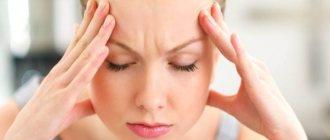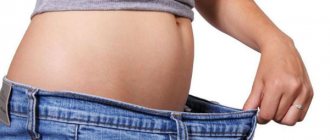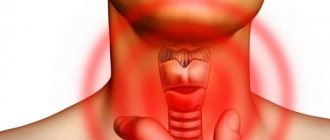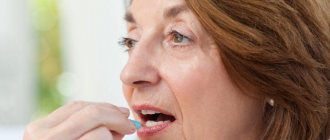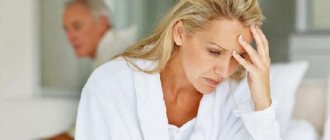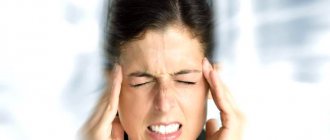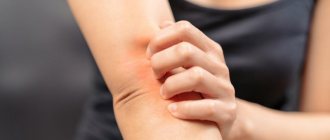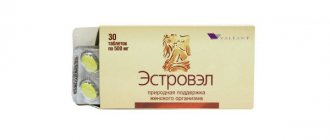Herbal preparations for menopause are an alternative to HRT and have an effect similar to therapy. When used regularly, phytohormones perfectly relieve the main symptoms of menopause, eliminate hot flashes and significantly improve the quality of life.
Let's look at the benefits of phytohormones during menopause, how they work, and which of them are the most effective.
What happens during menopause
Hormonal levels change during menopause. Hormones, which have a great influence on the functioning of important systems in the body, stop being produced in women.
These hormones include:
- estrogen . Responsible for the functioning of the genital organs, forms the mammary glands, ensures bone strengthening and tissue elasticity;
- estradiol . Responsible for the formation and combustion of adipose tissue. Provides strength and density of bone and cartilage tissue structure;
- testosterone . Ensures the formation of muscle and bone tissue, promotes the maturation of follicles;
- progesterone . Responsible for the stability of menstruation;
- prolactin . Forms mammary glands, especially during pregnancy.
IMPORTANT!
All of the above hormones together form the stable functioning of the female body. When their production stops, the well-coordinated system fails, which is caused by the symptoms of the menopause.
At this time, the amount of other hormones also increases - follicle-stimulating hormones (FSH) and luteinizing hormones (LH). You can read about the levels of these hormones during menopause in this article.
Symptoms
As the ovarian reserve (the number of eggs a woman has from birth) decreases, estrogen levels gradually decrease. The deficiency affects the functioning of the body. Hormonal imbalance destabilizes the functioning of the endocrine system and the humoral regulation of internal organs:
- Pituitary gland and hypothalamus. Blood pressure surges, hot flashes, increased sweating, nausea, dizziness.
- Thyroid. The secretion of thyroxine is increased, which causes disturbances in the functioning of the heart.
- Adrenal glands. Stitching and aching pain in the heart area and high blood pressure.
In addition, symptoms of estrogen deficiency include:
- Destruction of bone tissue. Bones become brittle and brittle, teeth deteriorate.
- An unstable emotional state, which is manifested by increased anxiety, irritability, anger, and resentment.
- Metabolic disease. Body weight increases, and diabetes mellitus sometimes develops.
- Dysfunction of the genitourinary system. Symptoms of cystitis appear and urinary incontinence occurs. There is dryness of the mucous membranes of the vagina, pain during sexual intercourse, burning and itching in the genitals, and discomfort while walking.
- Skin changes: dryness, sagging, deepening of wrinkles, formation of folds, brittle hair and nails.
Plant hormones and their types
To normalize the condition during menopause, you can use herbal preparations , infusions and extracts, which contain substances similar to organic estrogen. Otherwise, these agents are also called phytohormones.
If it is impossible to resort to hormonal therapy, many women cope with the symptoms of hot flashes by taking phytohormones. These substances are produced only by plants.
The classical classification of plant hormones involves their division depending on their chemical structure and their effect on the physiological development of plants:
- autins;
- ethylene;
- abscisins;
- cytokinins;
- gibberellins.
As for phytohormones containing plant estrogen, their classification is as follows:
- kumestans . The most effective among them are the sprouted seeds of alfalfa and clover. Legumes and vegetables contain significantly less of this element;
- flavones . Contained in tea, citrus fruits, red wine, cabbage, carrots;
- isoflavones . The most common isoflavones are daidzin, genistin, and glycitin. The maximum amount is found in soy;
- lignans . Contained in grain varieties of bread, soybeans, nuts, flaxseed.
NOTE!
The composition of biologically active herbal supplements (BAS) can be combined and include several types of phytohormones.
What are phytoestrogens
Phytoestrogens are plant compounds that belong to the group of non-steroidal natural elements that can replace estradiol and are similar in action to organic estrogen.
The property of phytoestrogens to bind in the body to the same receptors as organic estrogens determines their effect on the body during menopause.
These substances can normalize hormonal levels in case of estrogen deficiency in the body and significantly improve the condition of women during menopause.
This kind of artificial replacement helps the body adapt more gently to hormonal changes.
The reaction of the female body to changes in estrogen levels in the blood
Changes in the level of hormones in the blood are accompanied by menopausal symptoms that interfere with leading a full life. Estrogen deficiency in each woman gives symptoms of individual severity.
Early signs of estrogen depletion during menopause include:
- Mental and emotional disorders. Frequent overwork, decreased performance, short temper, tearfulness, mood swings, suspicion, anxiety, aggressiveness, depression, unreasonable fears for health, worries about approaching old age.
- Sleep disorders . The woman sleeps poorly, cannot fall asleep for a long time, wakes up several times in the middle of the night, snores, and suffers from “restless legs” syndrome. Apnea may develop.
- Vegetovascular disorders. Tachycardia, heavy breathing, feeling of suffocation, pain in the head, dizziness , tingling and heaviness in the chest, pressure fluctuations, chills, hot flashes to the head and upper torso, excessive sweating, numbness of the fingers.
All of the above symptoms are combined under one name - menopausal syndrome. It develops during premenopause, lasts throughout menopause, and covers the first 2–3 years of postmenopause.
Then, medium-term symptoms of menopause develop. They last about 10 years after the end of the menopausal stage. These symptoms include:
- Disorders of the genitourinary system. Urinary incontinence, cystitis, urethritis, drying out of the mucous membranes of the vaginal walls, which causes unpleasant, even painful sensations when moving the legs and sexual acts.
- Deterioration of the condition of the skin, hair, and nail plates. The skin becomes dry, itchy, and deep wrinkles appear. Hair breaks rapidly and falls out. Nails become thinner, often peel and break off.
10 years after the menopausal period, late symptoms of estrogen deficiency develop. A woman experiences the following complications of menopause:
- Deterioration of lipid and carbohydrate metabolism, which causes obesity, diabetes, atherosclerosis of the heart and brain vessels.
- Hypertension, ischemia.
- Thinning of bones caused by mineral deficiency. Increased likelihood of osteoporosis and other diseases of skeletal tissues.
- Problems with memory and thinking ability.
- Increased risk of Alzheimer's disease.
The meaning of herbal medicine
The method of therapy during menopause with herbal preparations with phytoestrogens is one of the common ways to reduce the symptoms of menopausal changes.
The natural composition of plant substances makes them harmless to the body, so herbal medicine has minimal side effects.
Not all women risk resorting to hormonal therapy (the most popular during menopause), since only after careful research can hormonal drugs be used, but only intermittently.
Herbal remedies may not have as strong an effect as hormonal ones, but their use does not have a time limit .
However, it must be taken into account that one of the significant contraindications to taking herbal remedies is individual intolerance to individual components of herbal remedies.
CAREFULLY!
Even if you are confident that a herbal preparation is harmless, its use should be agreed with your doctor. Self-medication does not always give a positive result, and in some cases it can be harmful.
How to delay the onset of menopause and reduce its manifestations?
Starting from the age of 40, every woman notices how her body changes. First, minor harbingers of ovarian failure appear, such as rare disruptions in the menstrual cycle, increased irritability and the first wrinkles. It is at this moment that patients need to think that age-related changes may soon occur and it is time to take measures to delay the onset of menopause and minimize its manifestations.
To prolong reproductive function, and therefore youth, there are several effective methods. At the first stage, when the menstrual cycle is still present, you can delay the onset of menostasis by adjusting your diet, giving up bad habits and changing your lifestyle. Experts have proven that patients who do not drink alcohol, play sports and adhere to a healthy diet experience menopause much later, and its course is mild and lacks severe symptoms.
At later stages, drug therapy is required, when such unpleasant symptoms as:
- Tides.
- Pressure surges.
- Headache.
- Heart pain.
- Urinary incontinence.
- Dryness of the vaginal mucous membranes, etc.
Preparations containing estrogen during menopause can only be prescribed by the attending physician after a thorough examination and appropriate diagnosis. Today, there are several groups of medications that contain natural or synthetic substances that compensate for estradiol deficiency during menopause, and therefore significantly alleviate its manifestations.
Indications for use
Phytohormones are indicated for women not only during severe menopause.
They may also be prescribed in the following cases:
- with early menopause, when the cessation of menstruation began before the age of forty-five;
- in case of circulatory problems during menopause;
- to normalize the menstrual cycle during the childbearing period;
- to stabilize the condition after removal of the ovaries;
- in case of disturbance of the urination process;
- when the first signs of osteoporosis appear.
In addition, phytohormones are a good alternative for stabilizing hormonal levels and improving the condition in such cases as:
- late menstruation (after 16 years of age);
- severe hypertension;
- kidney and liver pathology;
- the presence of contraindications to taking hormonal drugs.
List of drugs
The most common herbal remedies that have a positive effect and have received the best reviews among women are:
- Feminal. Contains red clover extract. Contains isoflavones (40%). Indicated for use during menopause to reduce the severity of hot flashes. Available in capsules;
- Inoclim . Available in capsules containing soybean extract. Is a dietary supplement;
- Remens. Contains sanvinaria, black cohosh, and pilocarpus. Available in drops and tablets. Improves the condition during menopause. Indicated for use for at least six months;
- Climaxan. It can be presented in the form of granules and tablets. Contains cohosh, lachesis, apis. Indicated for severe symptoms of menopause;
- Lady's Formula . Plant vitamin complex. Contains a complex of vitamins, as well as extract of maitaki mushroom and red clover flowers. It has a general strengthening effect, reduces the symptoms of hot flashes and normalizes sleep. There are two types of drugs - Ledis Day-Night formula and Ledis enhanced formula;
- The brush is red . Improves hormonal levels and promotes its normalization;
- Menoforse . Contains vitamins, flavonoids and various minerals. Available in tablets. Stabilizes hormonal balance in the body and improves general condition.
IMPORTANT!
All these herbal remedies belong to the group of herbal remedies that normalize the condition of a woman during menopause.
List of drugs with phytoestrogens
The presence of plant estrogens in the composition of the following drugs determines their effect on hormonal levels during menopause.
Here is a list of the most common means:
- Estravel. Contains wild yam, nettle, black cohosh extract, isoflavones, diosgenin. Available in capsules. Is a dietary supplement;
- Qi-klim . Contains black cohosh. It is an estrogen substitute. Available in tablets and cream form. It is a biological additive. Reduces the effect of hot flashes, has a general strengthening effect;
- Clymandion. The main active substance is black cohosh extract. Available in tablets and drops for dilution in water. Belongs to the group of antimenopausal drugs: softens hot flashes, improves sleep, normalizes blood circulation;
- Femicaps . Contains soy extract, primrose oil, chasteberry extract, vitamins and minerals. It is a biological supplement in capsules. Corrects hormonal levels and is a general tonic;
- Climatoplan . Phyto tablets contain extracts of black cohosh, sepia, and sanguinaria. Has an estrogen-like effect. Reduces symptoms of menopause.
These medications can be taken for several years until the body adapts to hormonal changes.
Herbal collections
No less effective means are herbal infusions of medicinal herbs that can normalize hormonal levels and improve the condition during menopause.
You can use herbal infusions in the form of a self-prepared infusion, or you can buy ready-made herbal teas at the pharmacy.
The most common plants for menopause are:
- sage. You can make tea from it alone, or you can add valerian and horsetail extract. When taken regularly, this remedy will soften hot flashes and improve sleep;
- licorice root , calendula , anise (fruit), violet leaves . Taken together, this collection is effective for fatigue and headaches;
- hop cones , lemon balm and mantle in a decoction help get rid of sweating and heat during hot flashes;
- herbal tea made from blackberry , hawthorn , lemon balm , motherwort and dried herb improves the general condition of the body and normalizes the mental state.
NOTE!
These and other herbal infusions should be used after consultation with a doctor, and the advisability of taking them with other medications should also be clarified.
For the most part, herbal remedies are effective as non-hormonal remedies for menopause.
Treatment of menopausal syndrome
- To maintain female attractiveness and slow down the aging of the body, first of all, you need an active lifestyle with regular moderate physical activity, proper nutrition, proper rest and protection from stress.
- Herbal sedatives (valerian, motherwort, peony, St. John's wort, mint, chamomile, lemon balm, etc.), antispasmodics, beta blockers, vitamins, calcium supplements will help reduce the unpleasant manifestations of menopausal syndrome
- Tranquilizers like Grandaxin and Adaptol, taken in short courses of 2-3 weeks, also help a lot.
If the measures described above are ineffective, hormone replacement therapy may be prescribed for menopause as prescribed by a gynecologist.
HRT for menopause: indications
- Premature and early menopause;
- Moderate and severe symptoms of menopausal syndrome (hot flashes, night sweats, insomnia, decreased mood, increased blood pressure, etc.)
- Urogenital disorders (painful and frequent urination, vaginal dryness, urinary incontinence, etc.);
- Prevention of osteoporosis (prevention of fractures);
- Improved quality of life (increased activity, performance, mood, smoothing out the external manifestations of aging)
Properly selected HRT with the use of estrogens can quickly improve the well-being of women aged 45-60 years, relieve them from the painful manifestations of menopausal syndrome, ensure the prevention of osteoporosis and slow down the aging process. Hormone replacement therapy has been successfully used in various countries around the world for 20 years and has proven its effectiveness during this period.



